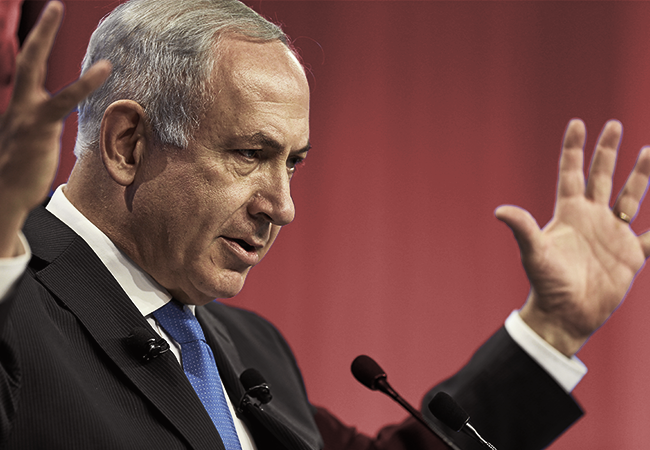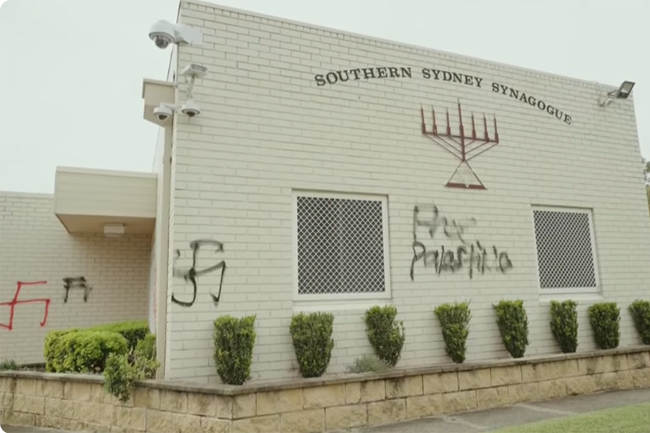The Menzies years were a time which many of us with long memories do not want to see repeated — despite the best efforts of the Murdoch media, writes Bilal Cleland.
THE FOUNDING FATHER of the Liberal Party of Australia – frequently quoted and praised – was Robert Gordon Menzies.
The ABC's 2016 documentary, 'Howard on Menzies: Building Modern Australia', defended his legacy from its critics.
John Howard had no doubts as to Menzies' central significance, stating:
"Menzies... created the great middle class that we still have in Australia and that we must hang on to for dear life if we are to preserve the stability and harmony and fairness that we prize as being a distinguishing characteristic of the Australian nation."
That was certainly not the consensus amongst those I knew in the Western District town of Hamilton, where I grew up.
Although my sectarian great aunts would never vote Labor as it was too “Catholic”, most of the rest of those I knew regarded Menzies as an enemy. The aunts only changed once the DLP split occurred and the Labor Party became less “Roman”.
Freedom of expression and censorship
The Liberal Party and One Nation controversy over s18C of the anti-vilification legislation, carried on in the name of "freedom of speech" under the Abbott Government, was certainly a deviation from the old United Australia Party (Liberal Party) conservatives.
They loved censorship. Under the Attorney Generalship and then the Prime Ministership of Menzies, in the 1930s, some 5,000 books were banned, including many left-wing works. Australia ranked as the most repressive English speaking nation.
The rise of European fascism and the aggression of the Japanese in China was causing concern in Australia and led to a growing anti-fascist movement and the strengthening of left-wing organisations. The conservative Government met this with harassment, including special legislation, extensive use of security services and police, prosecutions and imprisonment.
The rise of fascism
In the secret 1937 report on Australia’s political situation by Italian Consuls, the Attorney General at the time, Robert Menzies, was described as having made 'very strong affirmations in support of Fascism as an alternative to "professional parliamentarians" and members of his own party are recorded on Hansard in the Federal Parliament expressing strong admiration for Mussolini’s "work."'
Menzies resistance in 1938-39 to a waterside workers' ban on exports of pig-iron to Japan earned him the title of "Pig-Iron Bob". The Waterside Workers' Federation had refused to load a cargo of pig-iron for Japan, an aggressor in China and a future enemy of Australia.
That he was awarded the Order of the Rising Sun, First Class, in 1973 by Emperor Hirohito – regarded by many to be a war criminal – did little to enhance his reputation.
His visit to Germany in 1938 did not cause him to be repelled by Nazism at all:
Nevertheless it must be said that this modern abandonment by the Germans of individual liberty and of the easy and pleasant things of life has something rather magnificent about it. The Germans may be pulling down the churches, but they have erected the state, with Hitler as its head, in a sort of religion which produces spiritual exaltation that one cannot but admire and some small portion of which would do no harm among our somewhat irresponsible populations.
On 6 November 1938, Menzies told:
'... a Presbyterian Church audience that a government "founded on licence would destroy itself", and went on to call for more "national powers" to help the development of a "national spirit."'
This was just three days before "Kristallnacht" in Germany — the beginning of the violent pogrom against Jews.
'A fortnight earlier he had told a Melbourne audience that the enthusiasm for service to the State evident in Italy and Germany "could well be emulated in Australia."' ...
... Eight days after the start of World War II, Prime Minister Robert Menzies wrote a letter to Australia's High Commissioner in Britain, former Prime Minister Stanley Bruce.
He confidently expressed his opinion to Bruce that Hitler "had no desire for a first class war" and would offer peace talks after defeating Poland. In the words of Menzies, "nobody cares a damn about Poland".
The Japanese threat
Menzies was not concerned about Japan, either:
'In London on 3 March 1941, as part of a four-month visit, Menzies told an international audience of business representatives, journalists and diplomats, that Australia had no quarrel with Japan, and wanted to "draw closer to Japan and appreciate its problems."'
In December 1937, the Japanese army had buried alive thousands of citizens in Nanjing, China. Known as the "Rape of Nanjing", the world knew of the atrocity. The International Military Tribunal for the Far East in Tokyo estimated in 1946 that over 200,000 Chinese were killed in the incident. China's official estimate is more than 300,000 dead, based on the evaluation of the Nanjing War Crimes Tribunal in 1947.
The Brisbane Line
The "Brisbane Line" was the great accusation frequently thrown at Menzies. This appears to have been covered up very effectively after the war and is today usually described as "mythical". It was no myth to the Labour supporters of Hamilton in the 1940s and '50s and certainly not to the very vocal left-wing Labor MP, Eddie Ward.
Ward publicly alleged that the previous government – a United Australia Party-Country Party Coalition under Robert Menzies and Arthur Fadden – had planned to abandon most of northern Australia to the Japanese:
Ward continued to promote the idea during late 1942 and early 1943, and the idea that it was an actual defence strategy gained support after General Douglas MacArthur referred to it during a press conference in March 1943, where he also coined the term 'Brisbane Line'. Ward initially offered no evidence to support his claims, but later claimed that the relevant records had been removed from the official files.'
The controversy helped Labor win the 1943 Federal Election.
Many of us believe Ward.
Like most mainstream politicians of his era, Menzies was a strong supporter of the White Australia Policy. So was the ALP at the time.
Reds under the bed
Menzies' main rallying claim during the period prior to the 1949 Election was anti-communism. He was not too concerned about fascism or Japanese imperialism but the socialists really had him in full battle-cry.
The Petrov Affair allowed him to taint Dr Evatt with Soviet sympathies. Evatt was a great Australian statesman who had played a major role in the establishment of the United Nations Organisation.
Menzies had the Communist Party Dissolution Act 1950 passed but then the next year after a huge public campaign, the High Court declared it invalid. Its glaring flaw was that the intended law assumed the guilt of "named" Communists.
He tried again with a Referendum in 1951 but it was defeated by a narrow margin.
However "Reds under the bed", assisted by the industrial groups organised by B A Santamaria and then the split which created the Democratic Labor Party (DLP), assisted by sermons in the Catholic Churches and the conservative media, proved a potent political scare tactic over many years.
The Labor Party, which had seen Australia through the war, was out of power from 1949 to 1972.
These were the years of relative stagnation when we even opened our interior to British atom bomb testing between 1952 and 1957. Any opposition to such lunacy was attacked as Communist-inspired, as was any dissent from Liberal Party policy.
They have tried and are trying the old scare success, but the “Islamic Terrorist” threat appears to have waned of late, despite the occasional discovery of some individual with evil intent.
What is of increasing concern is the failure of the authorities to recognise the white supremacist terrorist danger.
A recent New York Times report comments:
'The challenge for law enforcement will be to buck a sometimes myopic focus on Islamic extremism as the only driver of international terrorism.'
The Menzies years were a time which many of us with long memories do not want to see repeated — despite the best efforts of the Murdoch media.
Bilal Cleland is a retired secondary teacher and was Secretary of the Islamic Council of Victoria, Chairman of the Muslim Welfare Board Victoria and Secretary of the Australian Federation of Islamic Councils.
 This work is licensed under a Creative Commons Attribution-NonCommercial-NoDerivs 3.0 Australia License
This work is licensed under a Creative Commons Attribution-NonCommercial-NoDerivs 3.0 Australia License
Support independent journalism Subscribe to IA.












